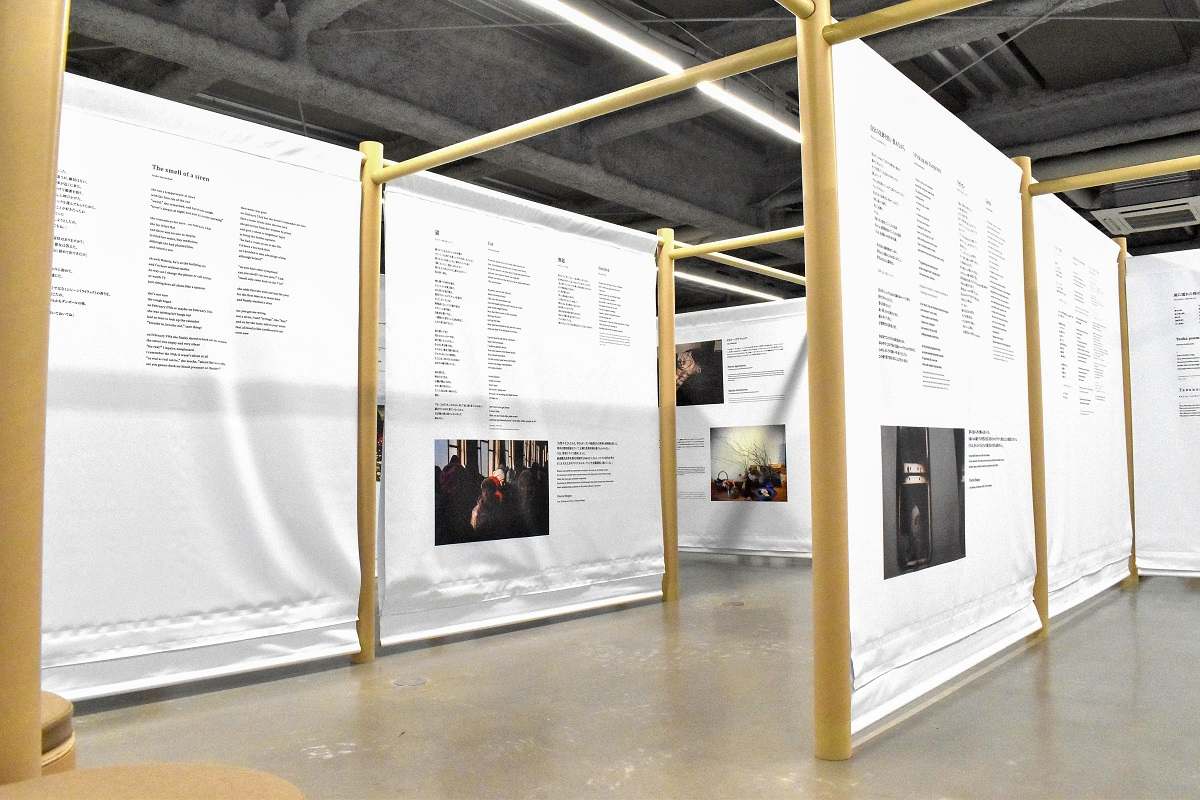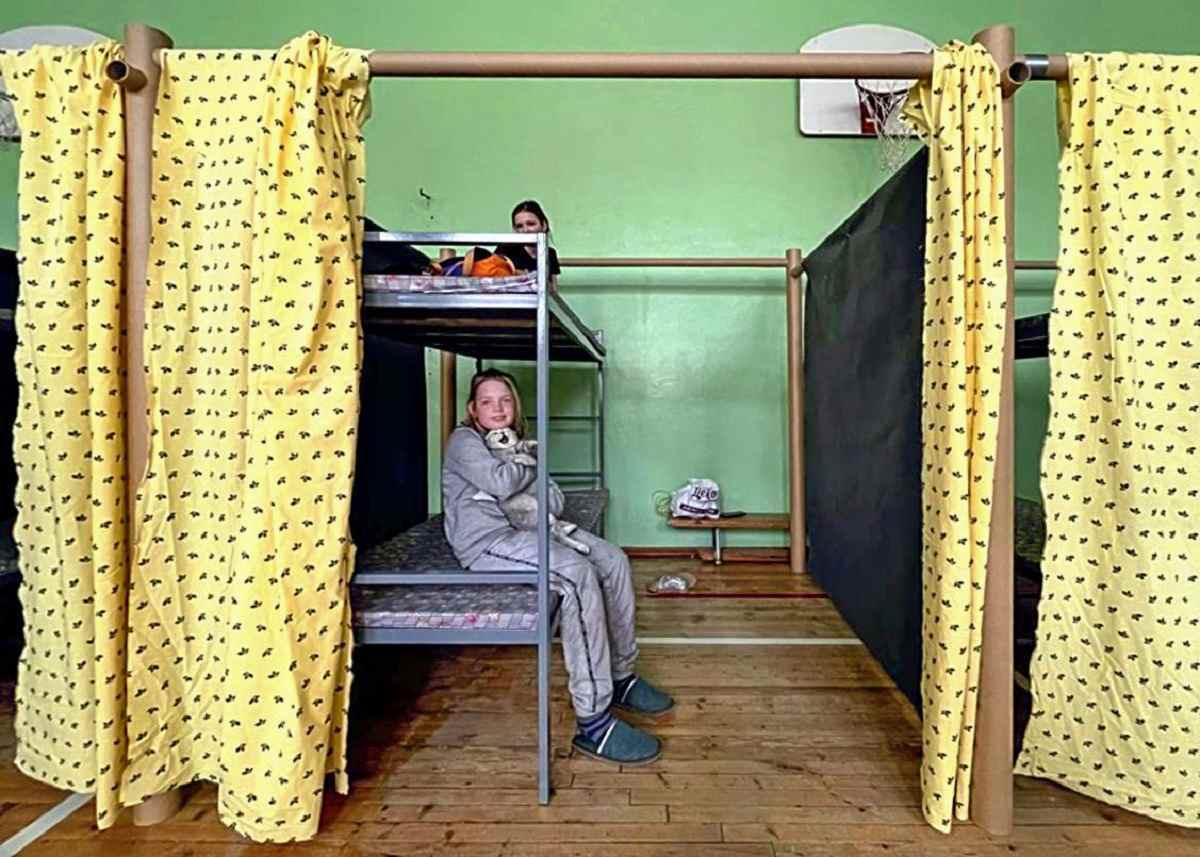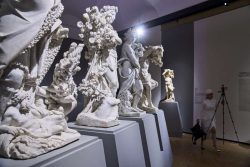Japan’s Architect Shigeru Ban Helps Shelter Displaced Ukrainians; Paper-Tube Walls, Refugees’ Words Displayed in Tokyo

A paper partition system created by architect Shigeru Ban is seen being used at an exhibition on the Toyosu campus of the Shibaura Institute of Technology in Tokyo.
13:46 JST, October 8, 2024
An exhibition devised by internationally renowned architect Shigeru Ban is being held at the Toyosu campus of the Shibaura Institute of Technology in Tokyo, featuring words and photographs of people who have been forced to flee Russia’s aggression against Ukraine.
At the exhibition, titled “Paper Sanctuary: Pragmatism and Poetry for Ukrainian Refugees,” partitions with the displays that are made from paper and cloth are used in place of walls. The partition system, created by Ban, is also used by Ukrainians living in shelters to help ensure privacy.
It is estimated that more than 13 million people have been displaced as a result of Russia’s ongoing aggression. Many of them are women, children and the elderly. At shelters in Poland, Slovakia and other locations, Ban has installed partitions using paper pipes to create pillars and beams, hoping to “create a place where people can feel as safe as possible.”

A displaced Ukrainian sits at a shelter in Lviv, Ukraine, in 2022.
Words and photographs displayed at the exhibition are statements by people who have taken refuge in such facilities. They express their thoughts about the cruelty of war as well as their feelings at the time of evacuation and their longing to return to their hometowns. Ukrainian poet and novelist Svetlana Lavochkina asked people via social media to submit materials, which was then translated by the staff of a nonprofit organization that Ban represents, among others.
One of the statements reads: “Now, in these tragic times, our house has gone deaf, mute and blind. Its window apertures are nailed up with wooden boards, the yard is overgrown with weeds and mutilated by missiles.” Another says, “Neither my son nor my husband are alive, they passed away long ago, but they live on in their letters, about 200 of them, too heavy for the scarce luggage I could take along on a flight. But I can’t live without these letters.”
The words express the irreplaceable memories and testimonies of each displaced person, which cannot be communicated through statistics.
Poems written about the conflict that followed Russia’s annexation of Crimea in 2014 are also exhibited.
“I want visitors to know that without bringing peace to the world, there will be no peace in Japan,” Ban said.
The exhibition is taking place until Oct. 20, at the Shiro Arimoto Memorial Alumni Hall Community Lounge on the campus. Admission is free.
Top Articles in Society
-

Producer Behind Pop Group XG Arrested for Cocaine Possession
-

Man Infected with Measles Reportedly Dined at Restaurant in Tokyo Station
-

Man Infected with Measles May Have Come in Contact with Many People in Tokyo, Went to Store, Restaurant Around When Symptoms Emerged
-

Woman with Measles Visited Hospital in Tokyo Multiple Times Before Being Diagnosed with Disease
-

Australian Woman Dies After Mishap on Ski Lift in Nagano Prefecture
JN ACCESS RANKING
-

Producer Behind Pop Group XG Arrested for Cocaine Possession
-

Japan PM Takaichi’s Cabinet Resigns en Masse
-

Man Infected with Measles Reportedly Dined at Restaurant in Tokyo Station
-

Israeli Ambassador to Japan Speaks about Japan’s Role in the Reconstruction of Gaza
-

Videos Plagiarized, Reposted with False Subtitles Claiming ‘Ryukyu Belongs to China’; Anti-China False Information Also Posted in Japan























